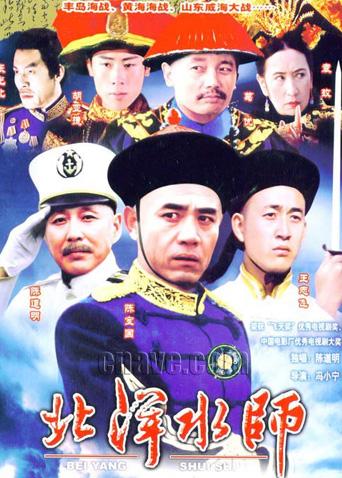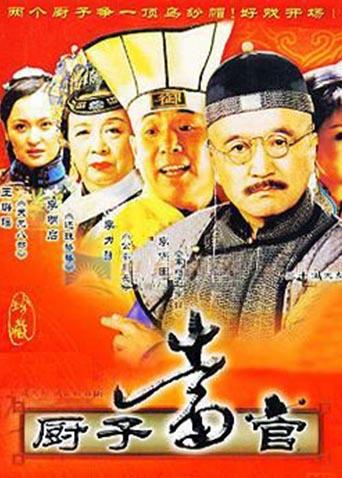警探汤子维在劫案时与劫匪火拼对峙时失去了并肩作战的战友,春暖被劫匪逃脱后,春暖不顾阻拦誓要侦破案件他联手新上任的搭档杨震找来了百步穿杨的女猎手金姗姗、深藏不露的使刀高手关一刀,四人费心调查一步步接近了案件的真相,却没想到陷入了更为复杂纠葛的境况......
警探汤子维在劫案时与劫匪火拼对峙时失去了并肩作战的战友,春暖被劫匪逃脱后,春暖不顾阻拦誓要侦破案件他联手新上任的搭档杨震找来了百步穿杨的女猎手金姗姗、深藏不露的使刀高手关一刀,四人费心调查一步步接近了案件的真相,却没想到陷入了更为复杂纠葛的境况......


回复 :青春爱情喜剧电影《忠犬情缘》主要讲述了女孩韩梓萱因网游和养狗男孩欧阳俊杰相识、相恋,日后他们俩之间的情感变化,以及女孩对男孩的宠物‘酷吧’的爱恨交织,日久生情最终成为生活中的伴侣。剧中欧阳俊杰应邀伙同好友去探险将他的宠物‘酷吧’托付给韩梓萱后,不料欧阳俊杰意外身亡。为了让沉浸在悲痛中的韩梓萱和宠物‘酷吧’走出阴影,男孩程旭组织了一起网游的朋友们出海游玩,游玩过程中程旭向韩梓萱示爱却遭到‘酷吧’喜剧性的种种阻扰。途中,游船触礁翻船,‘酷吧’在救起韩梓萱后又重返海中救起了程旭,‘酷吧’疲惫之极却被浪卷入海中。程旭自责万分,含泪大哭向韩梓萱说出欧阳意外身亡的真相。影片通过一段现代青年的网恋爱情故事同时,也体现了狗与人类生活的情感故事。淋漓尽致的表现了:狗的心中只有主人,为了挽救主人可以牺牲自己的生命,这种精神值得人们崇敬,值得我们去爱护它们,珍惜它们的生命。通过这部影片更能说明了‘狗是人类最忠实的朋友’。
回复 :1971年,葡萄牙殖民战争仍未结束,被派往南非安哥拉的青年医师只能通过书信与怀孕的妻子诉说前线的见闻,他在异乡所见的自然、人文全部都化作信中既温暖又饱含思念之情的文字。但当战事越演越烈,人性最丑陋的一面终于再也藏不住了,书信里的言语也变得困惑难解...电影用壮阔绝美的黑白影像,谱写了一曲残酷的战争寓言。
回复 :Somewhere in the remote region, the war ends. In the midst of ruined cities and houses in the streets, in rural hamlets, everywhere where people still live, are children who have lost their homes and parents. Abandoned, hungry, and in rags, defenseless and humiliated, they wander through the world. Hunger drives them. Little streams of orphans merge into a river which rushes forward and submerges everything in its path. The children do not know any feeling; they know only the world of their enemies. They fight, steal, struggle for a mouthful of food, and violence is merely a means to get it. A gang led by Cahoun finds a refuge in an abandoned castle and encounters an old composer who has voluntarily retired into solitude from a world of hatred, treason, and crime. How can they find a common ground, how can they become mutual friends? The castle becomes their hiding place but possibly it will also be their first home which they may organize and must defend. But even for this, the price will be very high.To this simple story, the journalist, writer, poet, scriptwriter, movie director, and film theoretician Béla Balázs applied many years of experience. He and the director Géza Radványi created a work which opened a new postwar chapter in Hungarian film. Surprisingly, this film has not lost any of its impact over the years, especially on a profound philosophical level. That is to say, it is not merely a movie about war; it is not important in what location and in what period of time it takes place. It is a story outside of time about the joyless fate of children who pay dearly for the cruel war games of adults.At the time it was premiered, the movie was enthusiastically received by the critics. The main roles were taken by streetwise boys of a children's group who created their roles improvisationally in close contact with a few professional actors, and in the children's acting their own fresh experience of war's turmoil appears to be reflected. At the same time, their performance fits admirably into the mosaic of a very complex movie language. Balázs's influence revealed itself, above all, in the introductory sequences: an air raid on an amusement park, seen in a montage of dramatic situations evoking the last spasms of war, where, undoubtedly, we discern the influence of classical Soviet cinematography. Shooting, the boy's escape, the locomotive's wheels, the shadows of soldiers with submachine guns, the sound of a whistle—the images are linked together in abrupt sequences in which varying shots and expressive sharp sounds are emphasized. A perfectly planned screenplay avoided all elements of sentimentality, time-worn stereotypes of wronged children, romanticism and cheap simplification. The authors succeeded in bridging the perilous dramatic abyss of the metamorphosis of a children's community. Their telling of the story (the scene of pillaging, the assault on the castle, etc) independently introduced some neorealist elements which, at that time, were being propagated in Italy by De Sica, Rossellini, and other film artists. The rebukes of contemporary critics, who called attention to "formalism for its own sake" have been forgotten. The masterly art of cameraman Barnabás Hegyi gives vitality to the poetic images. His angle shots of the children, his composition of scenes in the castle interior, are a living document of the times, and underline the atmosphere and the characters of the protagonists. The success of the picture was also enhanced by the musical art of composer Dénes Buday who, in tense situations, inserted the theme of the Marseilaise into the movie's structure, as a motive of community unification, as an expression of friendship and the possibility of understanding.Valahol Europaban is the first significant postwar Hungarian film. It originated in a relaxed atmosphere, replete with joy and euphoria, and it includes these elements in order to demonstrate the strength of humanism, tolerance, and friendship. It represents a general condemnation of war anywhere in the world, in any form.
